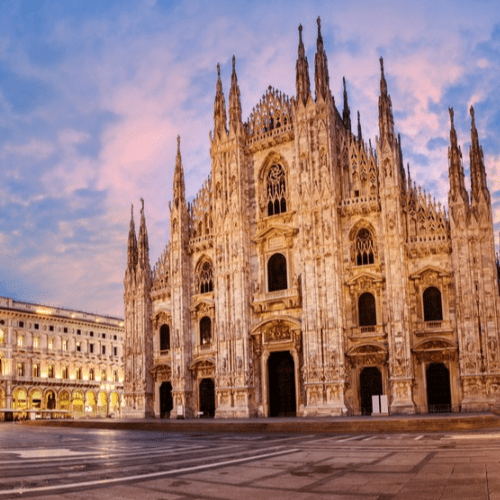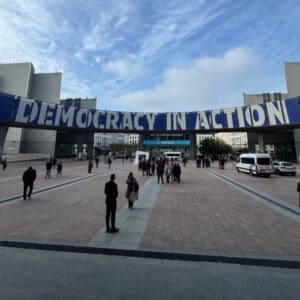
The World Travel & Tourism Council (WTTC) today launched the second edition of its groundbreaking Net Zero Roadmap for Travel & Tourism, revealing the number of global Travel & Tourism businesses setting climate targets has surged by 27% in the past three years, with more than half now actively committed to emissions reduction.
Launched at COP29 in Baku, Azerbaijan today, the report reveals, 53% of the 250 leading Travel & Tourism businesses analysed have now set climate targets, a significant increase from 42% in 2021, when the first Net Zero Roadmap was created.
Among these businesses, one third have committed to Science-Based Targets initiative (SBTi) goals, underscoring their dedication to meeting rigorous emissions reduction benchmarks.
Notably, the number of companies adopting SBTi targets has more than doubled since 2021, signalling an accelerated effort by the sector to align with global climate standards.
Developed in collaboration with Accenture, endorsed by the United Nations Framework Convention on Climate Change (UNFCCC), and supported by the State Tourism Agency of the Republic of Azerbaijan, this second edition of the roadmap underscores the urgency of climate action as the sector works towards net zero by 2050.
Building on the foundation of the original roadmap launched in 2021 at COP26, in Glasgow, Scotland, the latest edition addresses the escalating environmental impacts on tourism.
It introduces an enhanced decarbonisation framework, including new target corridors to guide Travel & Tourism businesses in setting ambitious, actionable climate targets.
The roadmap highlights that there is no ‘one size that fits all’ solution, as each industry faces its own challenges, with some able to meet their net zero targets earlier than others.
A major focus of the updated roadmap is improving sector alignment and transparency, particularly as demand for sustainable travel options grows, with 75% of global travellers now expressing a desire to travel more sustainably.
The roadmap also draws on WTTC’s Environmental & Social Research (ESR), which reveals a significant decrease in Travel & Tourism’s carbon emissions footprint.
According to the latest ESR data, Travel & Tourism accounted for 6.5% of global emissions in 2023, down from a peak of 7.8% in 2019, representing an 10.2% reduction in the sector’s greenhouse gas intensity, showcasing the sector’s significant strides toward decoupling growth from emissions.
Across a number of industries, the roadmap notes significant improvements in carbon intensity.
In 2023, the aviation industry achieved a 6% reduction in carbon intensity from 2019, when Travel & Tourism was at its peak, while the cruise and accommodation industries both decreased their carbon intensity by 11%.
These reductions are critical as the sector works to balance growth with a meaningful transition to lower emissions.
Julia Simpson, WTTC President & CEO, said, “The urgency of climate action in our sector has never been clearer. Climate change is not a future threat – it’s here, and we are all facing the consequences.
“This updated roadmap is a call to action for every business in Travel & Tourism. The sector is moving forward; but we mustn’t rest on the laurels. We must work together with greater ambition and urgency to create a sustainable future for Travel & Tourism. Every step counts towards preserving our planet and the livelihoods of millions.”
Jesko-Philipp Neuenburg, Accenture’s Global Travel and Aviation Sustainability Lead, said, “Global Travel companies have made good progress on emissions targets and measurement. The second edition of the roadmap underscores the importance of moving from commitments to actions and provides pragmatic advice on how to work towards decarbonisation of the Travel & Tourism sector.”
Niclas Svenningsen, UNFCCC Manager, Programmes Coordination said: “Since the first edition of this report was published three years ago, the world has experienced a continued out-of-control climate change with new heat records set across the entire planet.
“The impact has been devastating, not least in the tourism industry where many destinations have not only been negatively impacted, but in some cases the impact has been enormous. In a world where business-as-usual for Travel & Tourism is no longer an option, acting on the pathways and target corridors presented in this report, is the only way it can maintain its License to Operate.”
Kanan Gasimov, Head of Cabinet, the State Tourism Agency of the Republic of Azerbaijan said: “This roadmap serves as both an actionable guide and a vision-setting tool for the industry, helping us set ambitious goals while providing clear steps to reduce emissions across all tourism subsectors, from accommodation to aviation.
“Azerbaijan is proud to be part of this project. Through our COP29 Presidency, we have successfully advocated for tourism’s inclusion in international climate discussions and committed to embedding sustainable practices in our national policies. Together, we can build a tourism sector that aligns with global climate goals, preserves our natural heritage, and supports the livelihoods of our communities.”
The updated roadmap also highlights the role of Sustainable Aviation Fuel (SAF) in reducing aviation’s carbon footprint.
Reducing emissions by up to 80% over the fuel’s lifecycle, SAF has emerged as a cornerstone for aviation’s decarbonisation pathway, and the roadmap calls for the expansion of SAF adoption across airlines, supported by investment and regulatory alignment, to accelerate emissions reductions.
It also provides more detailed guidance for small businesses which represent the backbone of Travel & Tourism yet face unique challenges such as defining and following a more strategic decarbonisation approach.
It emphasises the importance of accessible green financing for small to medium enterprises (SMEs), that can often lack the resources to implement sustainability measures.
Despite these advancements, the report identifies ongoing challenges, both internal and external, that require attention. Measuring Scope 3 emissions remains a complex task for many companies, as does achieving regulatory alignment across regions.
A Call to Action for the Sector
WTTC and its Members urge businesses to adopt the roadmap’s target corridors, which suggest specific emissions reduction strategies across various timeframes. These tailored strategies aim to mitigate emissions within the next decade and reinforce long-term climate resilience.
WTTC encourages Travel & Tourism companies, stakeholders, and governments to support and implement the measures outlined in this roadmap.
Whilst the global Travel & Tourism sector is making progress, the global tourism body is urging governments to provide further incentives and subsidies to businesses in order to ensure targets are met.
By uniting in pursuit of net zero, the sector can achieve meaningful climate action, protect vulnerable destinations, and meet the expectations of environmentally conscious travellers worldwide.



















